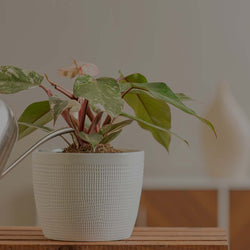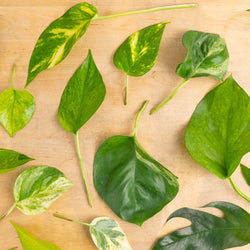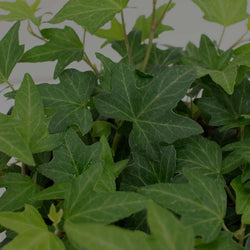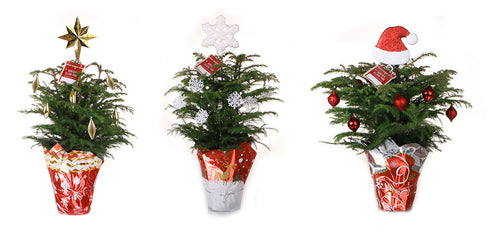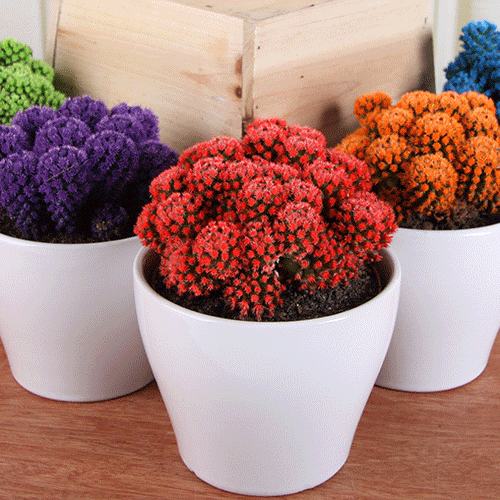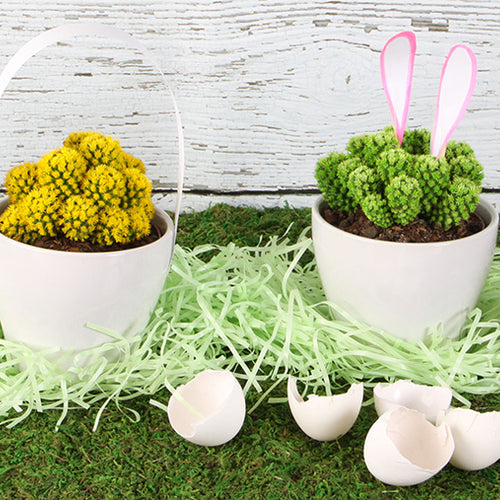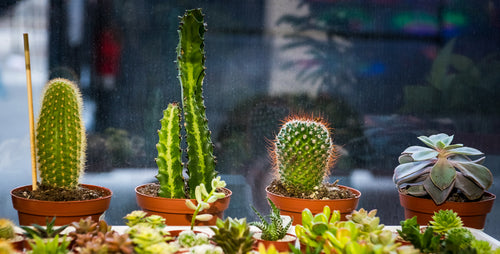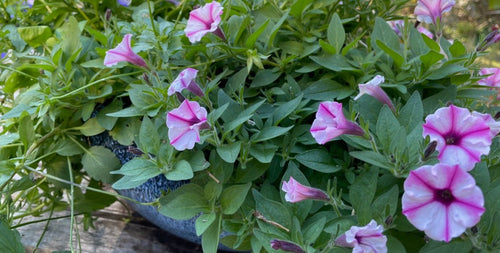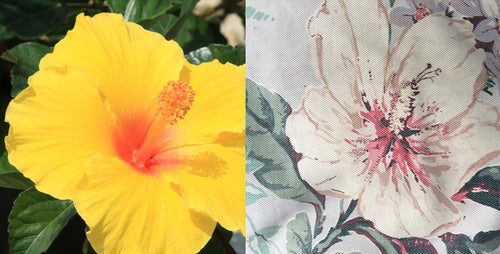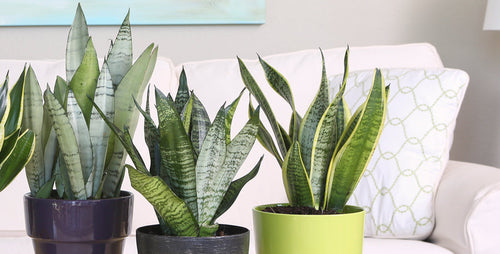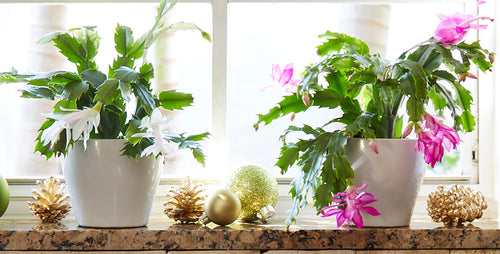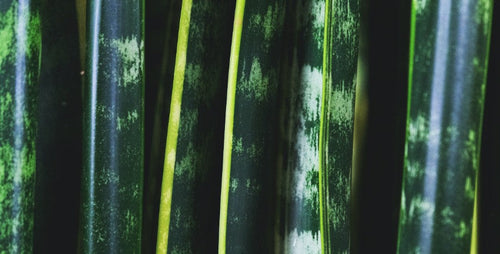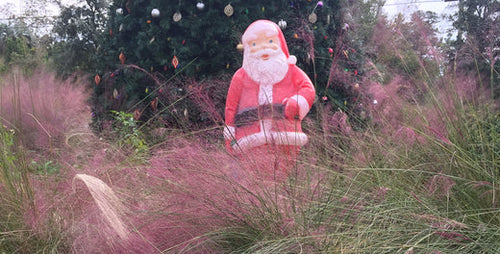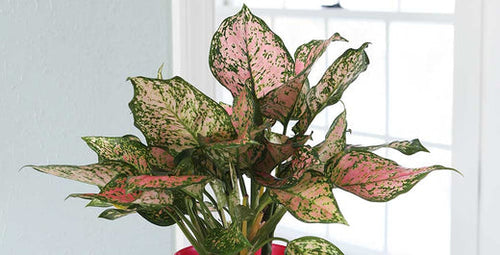Some holiday plants get a bad rap that’s not their fault. While these plants aren’t good for your pets to ingest, the good news is that they’re also not as dangerous you might believe. Check out our list of holiday plants that cause more worry than they warrant:
Poinsettia (Euphorbia pulcherrima): Perhaps the most common holiday plant around, poinsettias are native to Mexico and instantly add holiday appeal to your home. It is also one of the most widely misunderstood plants. Poinsettia has been labeled as toxic as far back as 1919, even though it’s not true. The plant got a bad reputation from a rumor that started when an army officer’s two-year old child died from allegedly eating a poinsettia leaf. The rumor was never confirmed. Scientific studies show that a 50-pound child would need to eat more than 500 poinsettia leaves before reaching a potentially toxic dose. If poinsettia leaves are consumed by a dog or a cat, the most common clinical signs reported are mild upset stomach upset and mild nausea, drooling, and/or vomiting. These signs will usually correct themselves without treatment and will develop within two hours after the exposure.
Christmas cactus (Schulumbergera truncata): Another common holiday plant that has an undeserved reputation, it can cause some hypersensitivity if the sap touches your skin, but all that has been seen in dogs are mild clinical signs such as vomiting, diarrhea, anorexia, and depression.
Holly (Ilex aquifolium): Just like with poinsettia, only mild stomach upset is expected in dogs and cats. In addition to vomiting and diarrhea, anorexia, lip-smacking, and head-shaking may be seen. If a large amount of holly is ingested, a foreign body obstruction may occur, as the leaves tend to be hard and sharp, and irritating to the stomach.
Mistletoe (Phoradendron flavescens): Despite the variety of potentially toxic components in mistletoe, serious poisonings are not frequent. The most common clinical signs when ingested by a dog are depression and vomiting. It’s also important to note that most commercially purchased mistletoe has plastic berries.
Christmas trees (including pines and firs): Christmas trees are not toxic to pets, but be wary of any preservatives that may be used in the water. Preservatives used today generally contain small amounts of fertilizer and may cause mild vomiting and diarrhea if ingested. Don’t forget to keep tinsel and other decorations away from your pets, as well.
Rosemary (Rosemarinus officinalis): Rosemary is not considered to be toxic to dogs or cats, and it adds beauty to any holiday décor. Like many herbs, a mild upset stomach can result after significant ingestion.
If you think your pet has ingested a potentially toxic plant, please contact your veterinarian or the ASPCA Animal Poison Control Center at 888.426.4435.
 The ASPCA was founded in 1866 and is a non-profit organization devoted to ensuring the kind and respectful treatment of animals. Its Animal Poison Control Center (APCC) is a resource available 24 hours a day, 365 days per year.
The ASPCA was founded in 1866 and is a non-profit organization devoted to ensuring the kind and respectful treatment of animals. Its Animal Poison Control Center (APCC) is a resource available 24 hours a day, 365 days per year.
Poinsettia (Euphorbia pulcherrima): Perhaps the most common holiday plant around, poinsettias are native to Mexico and instantly add holiday appeal to your home. It is also one of the most widely misunderstood plants. Poinsettia has been labeled as toxic as far back as 1919, even though it’s not true. The plant got a bad reputation from a rumor that started when an army officer’s two-year old child died from allegedly eating a poinsettia leaf. The rumor was never confirmed. Scientific studies show that a 50-pound child would need to eat more than 500 poinsettia leaves before reaching a potentially toxic dose. If poinsettia leaves are consumed by a dog or a cat, the most common clinical signs reported are mild upset stomach upset and mild nausea, drooling, and/or vomiting. These signs will usually correct themselves without treatment and will develop within two hours after the exposure.
Christmas cactus (Schulumbergera truncata): Another common holiday plant that has an undeserved reputation, it can cause some hypersensitivity if the sap touches your skin, but all that has been seen in dogs are mild clinical signs such as vomiting, diarrhea, anorexia, and depression.
Holly (Ilex aquifolium): Just like with poinsettia, only mild stomach upset is expected in dogs and cats. In addition to vomiting and diarrhea, anorexia, lip-smacking, and head-shaking may be seen. If a large amount of holly is ingested, a foreign body obstruction may occur, as the leaves tend to be hard and sharp, and irritating to the stomach.
Mistletoe (Phoradendron flavescens): Despite the variety of potentially toxic components in mistletoe, serious poisonings are not frequent. The most common clinical signs when ingested by a dog are depression and vomiting. It’s also important to note that most commercially purchased mistletoe has plastic berries.
Christmas trees (including pines and firs): Christmas trees are not toxic to pets, but be wary of any preservatives that may be used in the water. Preservatives used today generally contain small amounts of fertilizer and may cause mild vomiting and diarrhea if ingested. Don’t forget to keep tinsel and other decorations away from your pets, as well.
Rosemary (Rosemarinus officinalis): Rosemary is not considered to be toxic to dogs or cats, and it adds beauty to any holiday décor. Like many herbs, a mild upset stomach can result after significant ingestion.
If you think your pet has ingested a potentially toxic plant, please contact your veterinarian or the ASPCA Animal Poison Control Center at 888.426.4435.
 The ASPCA was founded in 1866 and is a non-profit organization devoted to ensuring the kind and respectful treatment of animals. Its Animal Poison Control Center (APCC) is a resource available 24 hours a day, 365 days per year.
The ASPCA was founded in 1866 and is a non-profit organization devoted to ensuring the kind and respectful treatment of animals. Its Animal Poison Control Center (APCC) is a resource available 24 hours a day, 365 days per year.
